#Battle of Plassey
Explore tagged Tumblr posts
Text
Modern History | Plassey Battle | Buxar Battle|
Battle of Plassey ( 1757 ) :- 1). Overview :- The Battle of Plassey was fought between the armies of Siraj - ud - daulah and Robert Clive on 23 June 1757 AD at Plassey .
East India Company Empire :- The expansion and organization of the English Empire in India was greatly expanded during the period (1798 - 1857) of three Governors of the East India Company - Generals Lord Wellesley, Lord Dalhousie and Lord Hastings. Read more :-
0 notes
Text
https://nishanteacademy.in/battle-of-plassey-upsc/
0 notes
Text
Day 13 March SOLSC! #SOL23

View On WordPress
0 notes
Text
Consequences of Battle of Plassey and Buxar
The Battles of Plassey (1757) and Buxar (1764) are seminal moments in Modern Indian history as they marked the beginning on the rise of British colonial rule in India. In 1757, the Battle of Plassey was fought by the forces of Siraj Ud Daulah (Nawab of Bengal) with the support of French support troops against the troops of the British East India Company, led by Robert Clive. Victory at Plassey…
0 notes
Photo

Anglo-Nepalese War
The Anglo-Nepalese War (aka Gurkha War, 1814-16) saw the British East India Company (EIC) lose several battles against Nepalese Gurkhas before finally securing victory in a hard-fought campaign that, for the first time, extended EIC control beyond the borders of India. Impressed with the Gurkhas' fighting abilities, the British have enrolled them in their armies ever since.
East India Company Expansion
The East India Company was founded in 1600, and by the mid-18th century, it was benefiting from its trade monopoly in India to make its shareholders immensely rich. The Company was effectively the colonial arm of the British government in India, but it protected its interests using its own private army and hired troops from the regular British army. By the 1750s, the Company was keen to expand its trade network and begin a more active territorial control in the subcontinent.
Robert Clive (1725-1774) won a famous victory for the EIC against the ruler of Bengal, Nawab Siraj ud-Daulah (b. 1733) at the Battle of Plassey in June 1757. The Nawab was replaced by a puppet ruler, the state's massive treasury was confiscated, and the systematic exploitation of Bengal's resources and people began. The EIC won another key contest in October 1764 with victory at the Battle of Buxar (aka Bhaksar) against the Mughal emperor Shah Alam II (r. 1760-1806). The emperor then awarded the EIC the right to collect land revenue (dewani) in Bengal, Bihar, and Orissa. This was a major development and ensured the Company now had vast resources to expand and protect its traders, bases, armies, and ships.
The EIC kept on expanding through diplomacy and military conquest. Victories came against the southern kingdom of Mysore across the three Anglo-Mysore Wars (1767-1799). Intertwined with these conflicts were the three Anglo-Maratha Wars (1775-1819) against the Maratha Confederacy of Hindu princes in central and northern India. Once again the EIC came out as the winner. The Company had extended its control of the subcontinent not only through direct territorial possessions but also through a policy of Subsidiary Alliances, where rulers of the Indian princely states were obliged to have an EIC resident at their court, host and pay for an EIC garrison, and hand over the direction of foreign policy to the British. With large parts of India now in its grasp, the ever-avaricious East India Company and its new Governor-General the Marquess of Hastings (in office 1813-23) began to look to the far north for further opportunities for profit. Consequently, the next EIC target was Nepal, and it declared war on the kingdom in April 1814.
Continue reading...
25 notes
·
View notes
Text
In 1757 the [East India Company] took part in the Battle of Plassey and gained control of Bengal. At first this led to the simple looting of the province, as the EIC extracted “gifts” and “tribute” from local elites. But as the Industrial Revolution got underway, English capitalists developed their textile industry. So, the EIC systematically destroyed the Indian cotton economy, drove farmers out of cotton production, and shut down spinning and weaving operations. British industry bought cotton grown on slave plantations in the southern United States. As India was eliminated as a competitor, the mills of the English Midlands flourished.
- Ken Hammond, Chapter 1 of "China's Revolution and the Quest for a Socialist Future"
#colonialism#bengal#cotton production#india#industrial revolution#1700s#history#the previous cotton farmers were encouraged to grow opium poppies and then the drug was sold to china.#also note that opium was illegal in china.#the british are the OG drug lords and cartels.#when the chinese tried to stop the smuggling of drugs in their country#the drug lords asked the british government for help and parliament decided to declare war on china.
24 notes
·
View notes
Text
Scientific knowledge and technology played a significant role in the expansion of colonial rule in India and the consequent incorporation of the Indian sub-continent into the [commercialized, imperial] world-system [...]. The colonization of nature, territory and people in British India led to a mutually constitutive interplay [...].
By the time the East India Company managed to establish a foothold in Bengal in 1757, [...] [a]fter the acquisition of the formal rights to collect revenues in the states of Bengal, Bihar and Orissa, the issue of obtaining accurate information about the extent of the produce, the population and other social statistics assumed significance. The detailed scientific surveys [...] were possible due to the large number of amateur scientists employed by the Company. Over time, these surveys played a major role in the transformation of a trading company into a colonial state [...] and the incorporation of India into the modern world-system. [...]
---
Considered the founder of British geography, James Rennell arrived in India in 1760 barely three years after the decisive battle of Plassey. Rennell’s cartographic skills caught the attention of the governor of Bengal presidency, who was ‘anxious to inaugurate some system for correcting and revising the geography of Bengal’ [...]. Rennell’s mapping out in great detail the area under the Company was indispensable for the rationalization of the extraction of surplus, administrative strategies and techniques of control. [...] In 1777 he left for England, and two years later he published the Bengal Atlas that led to his election to the Royal Society. [...] With reference to the ‘science wars’, [...] Rennell’s work was also incorporated in the key text[s] of the time, C. Lyell’s Principles of Geology (1830) [...] [and] the work of [...] Humboldt and Carl Ritter. Rennell’s surveys contributed to the organized [...] surveys [across wider regions of India] that followed after the defeat of Tipu Sultan of Mysore in 1799. [...] [Mysore's] sustained resistance to British power had a major impact on the general consciousness in Britain. [...]
Thomas de Quincey extolled the virtues of the ‘British bulldog’ against [...] the tyrannical ‘Bengal tiger’ [...]. The scientific knowledge that emerged as a consequence of the surveys of Mysore contributed [...] to the consolidation of administrative power [...]. The key figures associated with the surveys [included] Colin Mackenzie [...]. Mackenzie’s ethnographic notes contributed to imperial perceptions of the [...] [people of South Asia] and the grid of anthropological knowledge through which administrative power was deployed. [...]
---
Nature, culture and colonial power were inextricably implicated in the production of scientific knowledge and of colonial society. [...] The establishment the Public Works Department in 1854 provided fresh impetus for the deployment of science and technology in grappling with problems precipitated by colonial rule. Declining revenues for the Company focused attention on gigantic irrigation and other public works projects. [...]
The irrigation projects were expanded to include the railways (1849), the telegraph (1852), and the postal system (1850). Together, they represented the largest state-sponsored enterprise undertaken anywhere at that time. Lord Dalhousie, under whose tenure these projects were inaugurated, declared the railways, the telegraph and the postal system as the ‘three great engines of social improvement’.
His predecessor William Bentinck had already termed the railways ‘the great engine of moral improvement’ in a country ‘cursed from one end to the other by the vice, the ignorance, [...] the barbarous and cruel customs that have been the growth of ages under every description of Asian misrule’ [...]. Later observers were to wax ever more eloquent on the role of the railways in the modernization of India. For W. A. Rogers of the Indian Civil Service, railways ‘are opening the eyes of the people … they teach them that speed attained is time, and therefore money, saved or made’ (Adas1989: 226). The importance of a network of railways, connecting the cotton plantations of the Deccan region to the ports became significant especially during the 'cotton famine' of 1846 [...].
---
Almost immediately after Dalhousie left India, secure in the belief that the double engines of moral improvement and legitimacy were at work, the rebellion of 1857 put an end to such expectations. The rebellion was partly triggered in response to the wide-ranging transformations [...] triggered off by the introduction of [these] new [colonial infrastructures] [...].
In the end, the rebellion was violently suppressed by the very technologies that had precipitated it in the first place. [...]
---
All text above by: Zaheer Baber. "Colonizing nature: scientific knowledge, colonial power and the incorporation of India into the modern world-system". British Journal of Sociology 52(1), pages 37-58. April 2001. [Bold emphasis and some paragraph breaks/contractions added by me. Presented here for commentary, teaching, criticism purposes.]
#ecology#abolition#multispecies#landscape#geography#temporal#temporality#colonial#imperial#tidalectics#indigenous#archipelagic thinking#intimacies of four continents#plantations#carceral geography#opacity and fugitivity#indigenous pedagogies#black methodologies
38 notes
·
View notes
Text

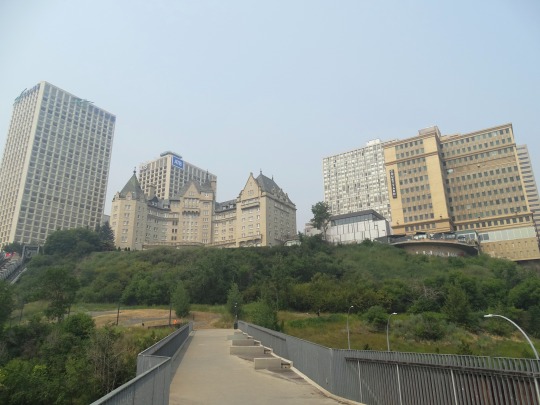
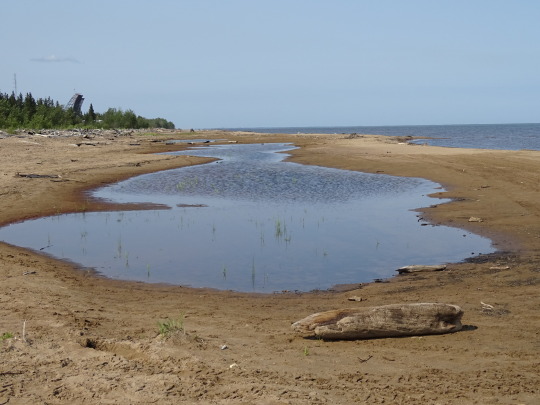
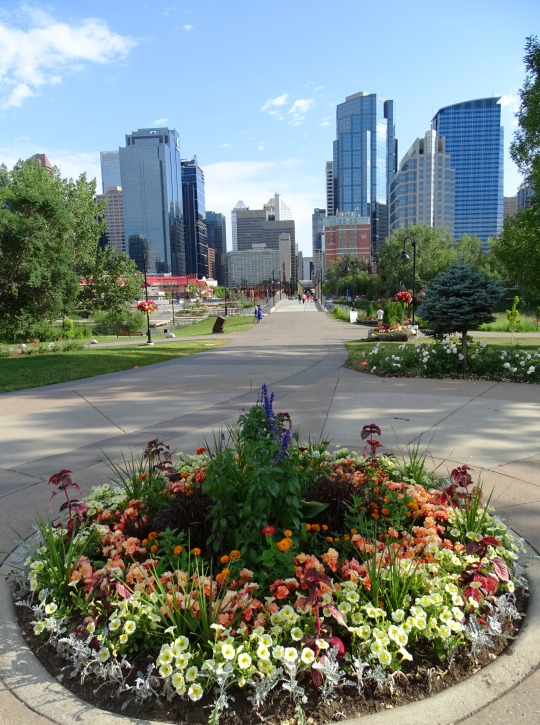
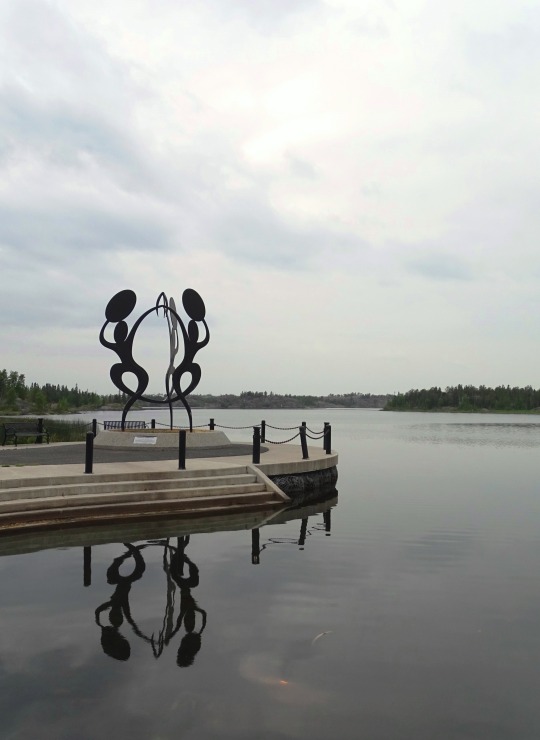
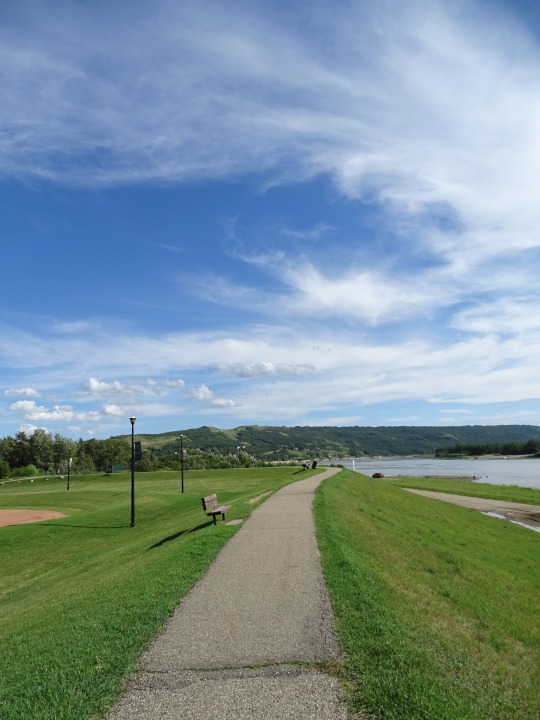
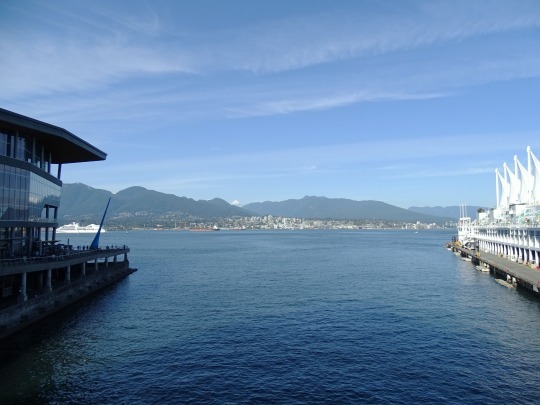
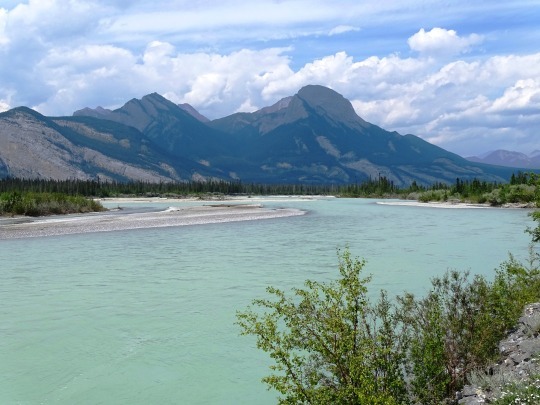
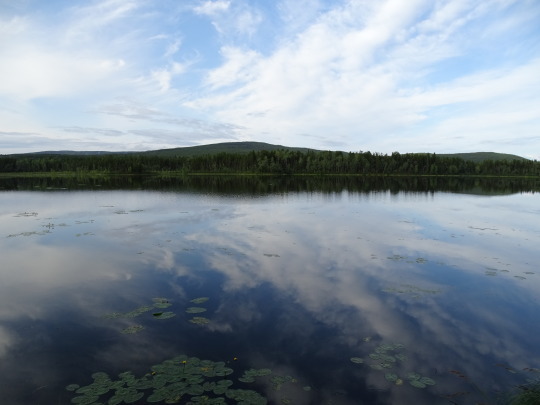


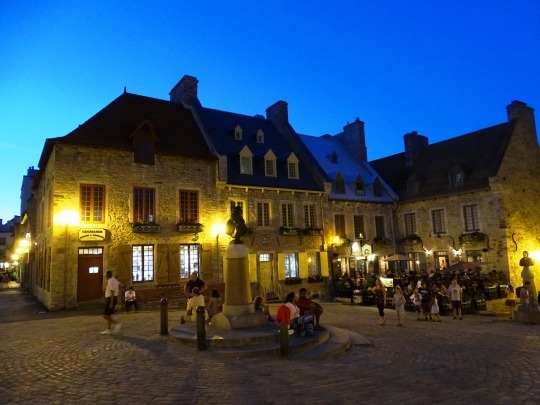
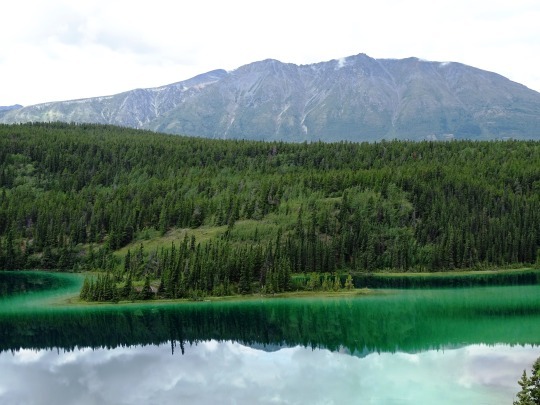
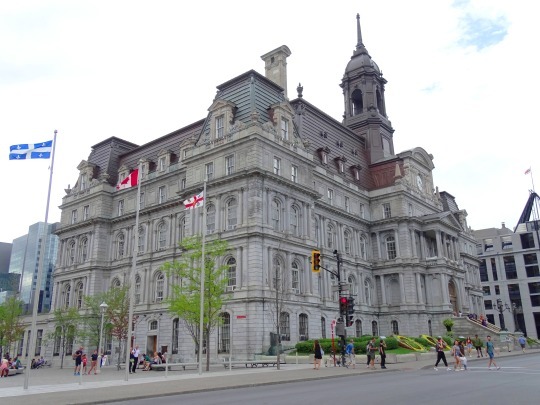

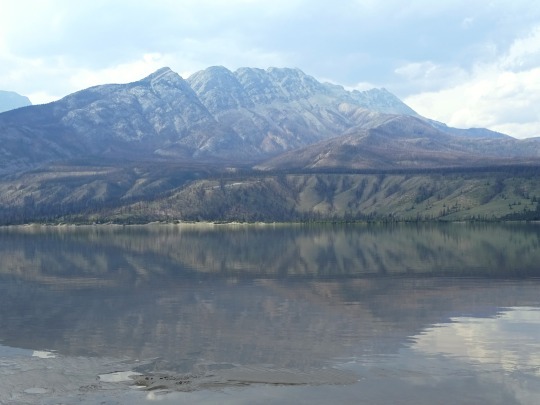

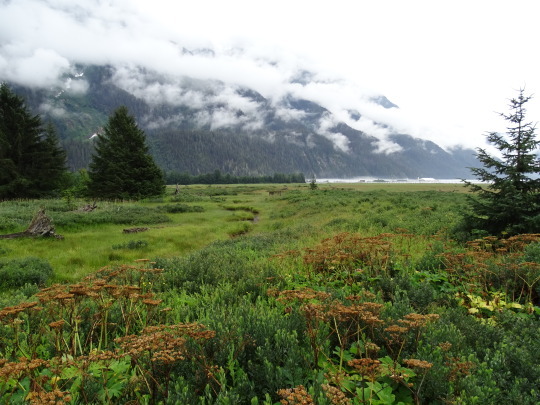

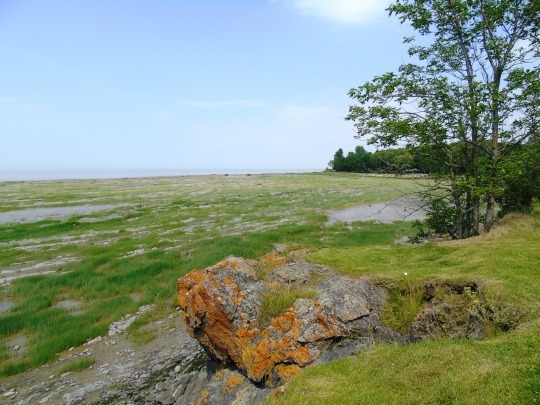

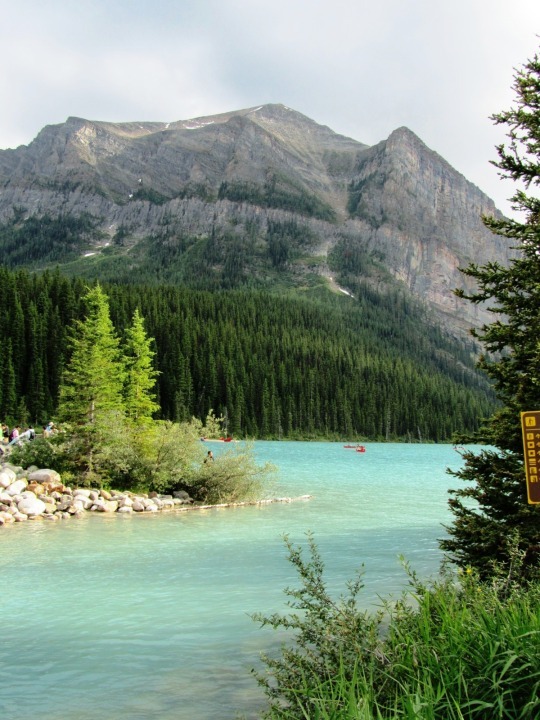
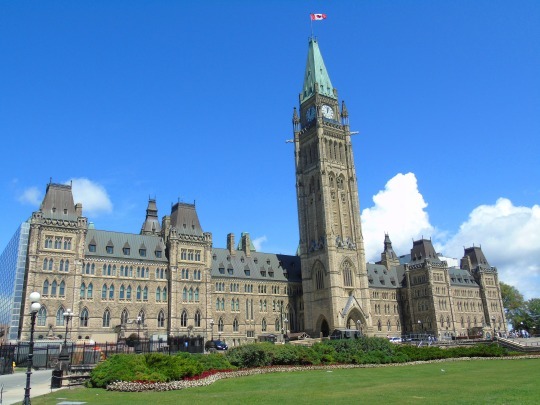
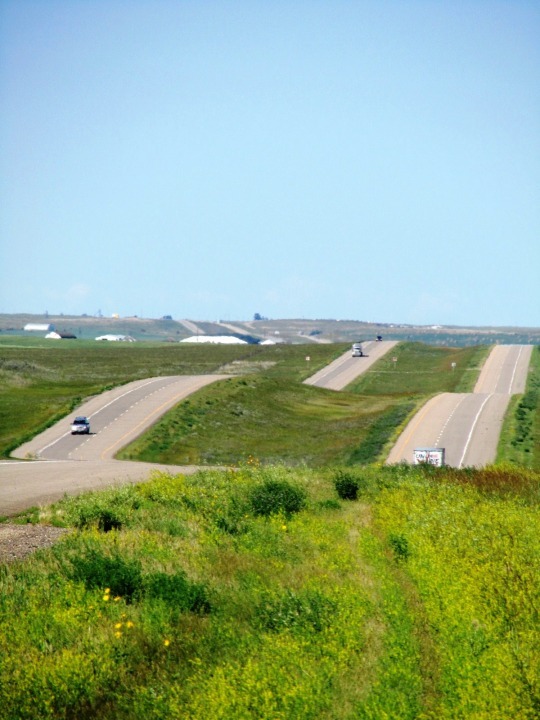
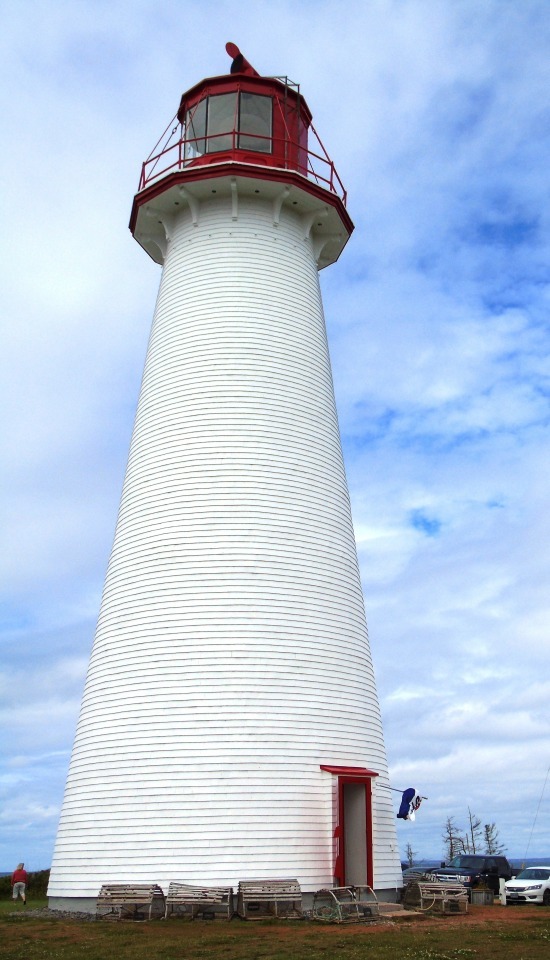
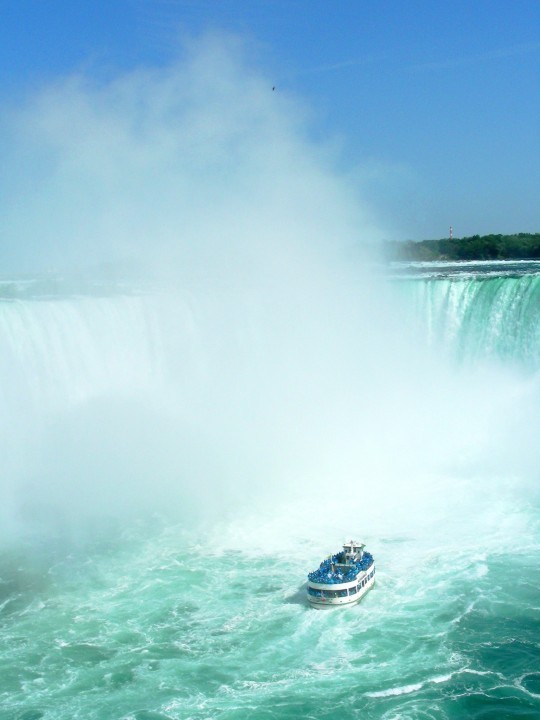
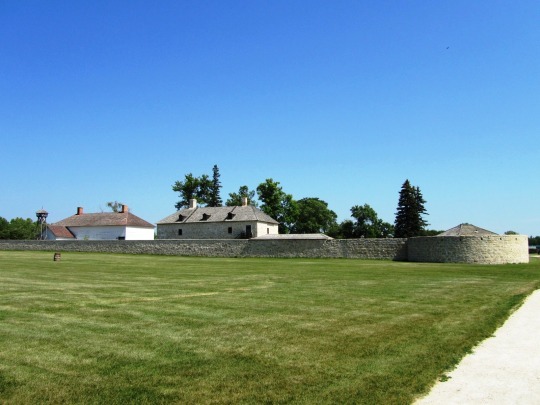
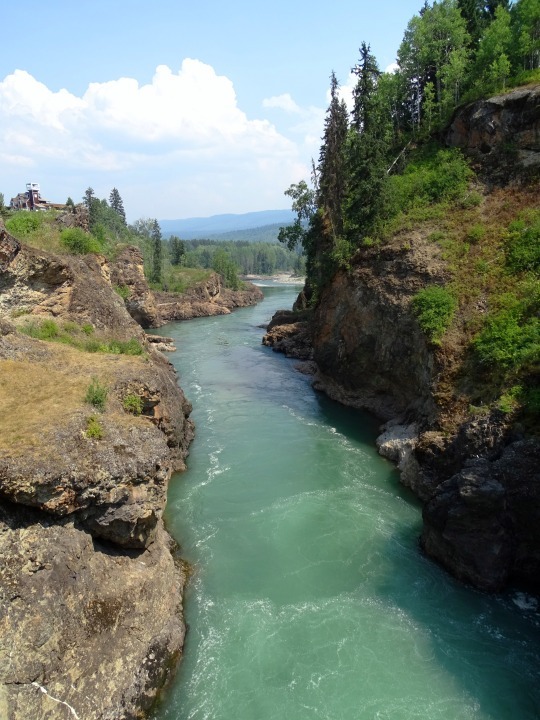
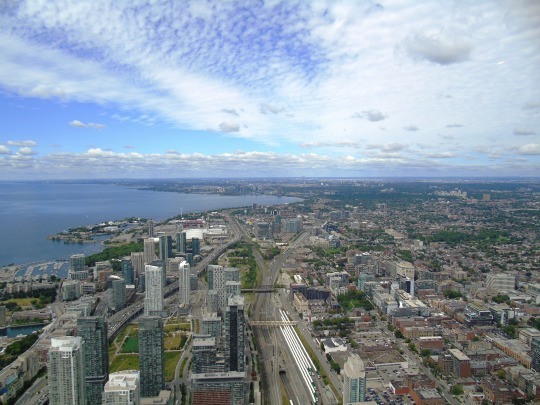
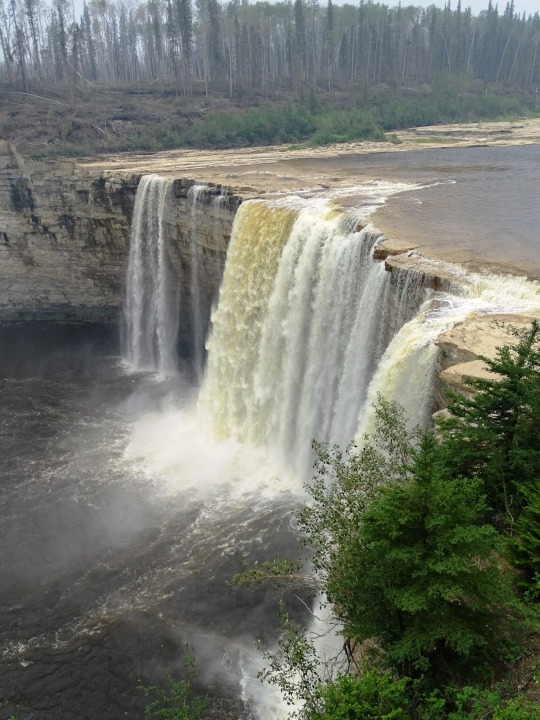
Statute of Westminster (11 December 1931) gave complete legislative independence to Canada, Australia, New Zealand, South Africa, Ireland (Free State), and Newfoundland (not then part of Canada).
Anniversary of the Statute of Westminster
The Anniversary of the Statute of Westminster is observed on December 11 every year. Although it is a holiday, Canadians still go to work, and it is pretty much an ordinary day for them. It is a nod to Canadian independence. The “Union Jack,” where logistics allow, is flown along with the Maple Leaf on federal buildings, airports, military bases from dawn to dusk to mark this day. It commemorates a British law that was passed on 11 December 1931. It was Canada’s final achievement of independence from Britain. The Statute of Westminster gave Canada and the other Commonwealth Dominions legal equality with Britain. These countries now had full legal freedom — except in areas which they chose. The Statute also defined the powers of Canada’s Parliament and those of the other Dominions. The day is mostly celebrated in Canada.
History of Anniversary of the Statute of Westminster
Before 1931, the British government had much influence over legislation passed by the Commonwealth Dominions (Canada, Australia, New Zealand, South Africa, the Irish Free State, and Newfoundland). Things began to change after the First World War — after the sacrifices of Canada and other Dominions on the battlefield stirred feelings of nationhood and desires for complete autonomy.
Canada began to assert its independence in foreign policy in the early 1920s. In 1922, Prime Minister William Lyon Mackenzie King denied help to British occupation forces in Turkey without first getting the approval of his Parliament. Later on, in 1923, Canada signed a fisheries’ treaty with the United States without seeking permission from Britain. In 1926, Canada established an embassy in Washington, DC, and Vincent Massey was named its first Canadian minister. This made him Canada’s first-ever diplomatic envoy posted to a foreign capital.
The Imperial Conference of 1926 was a more formal step. It gave legal backbone to the Balfour Report from earlier that year. The report had announced that Britain and its Dominions were constitutionally “equal in status.” The work of changing the Commonwealth’s complex legal system continued at the 1929 Conference on the Operation of Dominion Legislation. The Imperial Conference of 1930 further confirmed the need for the Dominions to have greater autonomy of their legislature. On 11 December 1931, the Statute of Westminster was passed by the British Parliament. This was done at the request and with the consent of the Dominions. This statute ratified the Dominions’ legislative independence. Although it had been granted the right to self-government in 1867, Canada did not enjoy full legal autonomy until the Statute was passed on December 11, 1931.
Anniversary of the Statute of Westminster timeline
15th and 16th Centuries Age of Discovery
Portugal and Spain pioneer European exploration of the globe, leading to the discovery of continents such as the Americas.
1757 Britain in India
Britain becomes the dominant power in the Indian subcontinent after defeating the Mughal in the Battle of Plassey.
1783 The American War of Independence
The war results in Britain losing some of its oldest and most populous colonies in North America.
1956 The Suez Crisis
The Suez Crisis confirms Britain's decline as a global power, because the Egyptian president nationalizes the Canal, owned by the Suez Canal Company, and formerly controlled by French and British interests.
Anniversary of the Statute of Westminster FAQs
Who is the current sovereign under the Statute of Westminster?
Today, the Statute of Westminster’s restrictive clause is still valid, so the current sovereign is Queen Elizabeth II. Her acting advisors are known as federal ministers of the Crown.
Which is more important: the Statute of Westminster or confederation?
The Statute of Westminster is arguably a more momentous occasion in Canada’s journey to sovereignty than to a confederation.
When did New Zealand adopt the Statute of Westminster?
The Parliament of New Zealand adopted the Statute of Westminster in November 1947.
How To Observe Anniversary of the Statute of Westminster
Explore from your armchair
Study your country’s history
Play a game such as balderdash
We have only given you brief information on the statute. Observe the anniversary by reading in detail about the statute — and things relating to it.
Britain had successfully colonized some of the biggest nations in the world. On this day, read about your country’s past — colonial or not — and try to understand how colonialism continues to affect the world today.
There are games that have categories including really strange laws from around the world, which would be fun with friends and family. While you are all laughing, remember that most laws had reasons, and have fun discussing that.
5 Facts About Canada That Will Blow Your Mind
Canadians eat the most donuts in the world
Bigfoot is legally protected in Canada
Smelling bad is illegal in Canada
The money is vision-impaired friendly
Canada has two national sports
There are only 30 million people in Canada, but over 1 billion donuts are eaten annually.
It is illegal to kill a Sasquatch in British Columbia.
Anyone smelling offensive in a public place could face two years in jail.
Canadian banknotes have braille writing on them for the blind.
Ice hockey and lacrosse are the national sports of Canada.
Why We Love the Anniversary of the Statute of Westminster
It’s a part of history
This day encourages us to explore our history
A day to learn and chat about laws
The Statute of Westminster played an important role in the history of Canada and other former dominions. The anniversary acknowledges this crucial day in history.
#Yukon#Statute of Westminster#11 December 1931#anniversary#legislative independence#vacation#Canada#Newfoundland#Canadian history#Québec#travel#Quebec City#Ottawa#Montréal#Ontario#original photography#cityscape#landscape#Niagara Falls#Lake Ontario#Atlantic Ocean#Alberta#Vancouver#British Columbia#Manitoba#Saskatchewan#New Brunswick#Nova Scotia#Pacific Ocean#Northwest Territories
6 notes
·
View notes
Text
History of Bangladesh
1. Ancient Bengal (Before 1204 AD)
Prehistoric Bengal:
The history of Bengal dates back to ancient times, with archaeological evidence of human settlements dating to around 4000 BC. The early inhabitants were proto-Australoid, Tibeto-Burman, and Dravidian people. Bengal's history was largely shaped by the Ganges-Brahmaputra delta, which fostered trade and agriculture.
Vedic and Mauryan Period:
During the Vedic period, Bengal was known as "Vanga," and it is mentioned in early Sanskrit literature. Bengal was later integrated into the Mauryan Empire under Emperor Ashoka (3rd century BC), who promoted Buddhism across his vast empire. After the fall of the Mauryan Empire, Bengal was ruled by several local dynasties, including the Pundras and the Samatatas.
Gupta Empire and Bengal's Flourishing Culture:
During the Gupta period (320-550 AD), Bengal became an important cultural and political region. The Guptas, with their capital in Pataliputra, dominated much of northern India, including Bengal. The Buddhist Pala Dynasty (8th-12th century AD) succeeded the Guptas in Bengal, ushering in an era of prosperity. The Palas were great patrons of Buddhism and established universities like Nalanda and Vikramshila.
The Sena Dynasty:
The Hindu Sena dynasty (c. 1095-1204 AD) replaced the Palas. The Sena rulers were patrons of Brahmanical Hinduism and played a key role in shaping Bengali culture and society. They were the last major Hindu rulers of Bengal before the Muslim conquest.
2. Medieval Bengal (1204–1757 AD)
Early Muslim Conquests:
The Muslim conquest of Bengal began with the Turkish general Bakhtiyar Khalji’s invasion in 1204. Khalji’s forces defeated the Sena dynasty, and Bengal was gradually absorbed into the Delhi Sultanate. Over the next several centuries, Bengal became a key region in the Islamic world, ruled by various Muslim dynasties, including the Bengal Sultanate (1352–1576), which was known for its wealth and cultural diversity.
The Bengal Sultanate:
The Bengal Sultanate flourished during the 14th and 15th centuries as an independent Muslim kingdom. It was a center of trade, culture, and learning, connecting the Indian subcontinent with the broader Islamic world. The Sultans built architectural marvels, such as mosques and forts, many of which still stand today. The most prominent sultan, Ghiyasuddin Azam Shah, was a patron of Persian literature and established diplomatic relations with China.
Mughal Period (1576–1757):
The Mughals, under Emperor Akbar, annexed Bengal in 1576 after a protracted struggle. Bengal became one of the wealthiest provinces of the Mughal Empire due to its fertile lands and thriving trade. Dhaka was established as the capital of Bengal during the Mughal period and became a key center for commerce and craftsmanship, particularly in textiles. The Nawabs of Bengal, appointed by the Mughal emperors, effectively ruled the region, but they gradually gained autonomy.
3. Colonial Bengal (1757–1947)
British East India Company:
The turning point in Bengal’s history came with the Battle of Plassey in 1757, when British forces, led by Robert Clive, defeated Nawab Siraj-ud-Daulah. This marked the beginning of British control over Bengal and eventually over much of India. Bengal became the first region to come under direct control of the British East India Company. The company’s exploitation of Bengal’s resources, combined with heavy taxation, led to economic distress and famines, such as the Bengal Famine of 1770.
Bengal Renaissance:
Despite British exploitation, the 19th century saw a cultural and intellectual awakening in Bengal, known as the Bengal Renaissance. Influential figures such as Raja Ram Mohan Roy, Ishwar Chandra Vidyasagar, and Rabindranath Tagore played crucial roles in reforming society, promoting education, and fighting against social injustices like Sati and child marriage. Bengal became the epicenter of Indian nationalism, with movements like the Young Bengal Movement and the Brahmo Samaj gaining prominence.
Partition of Bengal (1905) and Reversal (1911):
In 1905, the British colonial administration, under Lord Curzon, divided Bengal into two provinces: East Bengal and Assam, and West Bengal. This decision, seen as a tactic to divide and weaken the growing nationalist movement, sparked widespread protests and boycotts. The partition was eventually reversed in 1911, but the seeds of communal tension between Hindus and Muslims had already been sown.
The Independence Movement:
Bengal was at the forefront of the Indian independence movement. Leaders such as Subhas Chandra Bose, Surya Sen, and Chittaranjan Das played significant roles in resisting British rule. The Quit India Movement of 1942 also found strong support in Bengal. However, communal violence between Hindus and Muslims escalated during this period, especially during events like the Calcutta Killings of 1946.
4. The Partition and Pakistan Era (1947–1971)
Partition of Bengal (1947):
With the end of British rule in 1947, Bengal was once again divided, this time along religious lines. The western part became the Indian state of West Bengal, while the eastern part became East Pakistan, a part of the newly-formed state of Pakistan. Despite being geographically and culturally distant from West Pakistan, East Bengal (East Pakistan) became part of a nation dominated by West Pakistan.
Discontent in East Pakistan:
East Pakistan’s relationship with West Pakistan was strained from the beginning. The people of East Pakistan felt marginalized and exploited by the political and economic policies of the central government in West Pakistan. The imposition of Urdu as the sole national language in 1948 sparked the Bengali Language Movement, which culminated in the deaths of several students in Dhaka on February 21, 1952. This day is now commemorated as International Mother Language Day.
Economic disparities between the two wings of Pakistan further fueled discontent. East Pakistan, despite being the more populous and resource-rich region, received far less development aid and political representation. The situation worsened when the government of Pakistan, under President Ayub Khan, pursued policies that favored the western wing at the expense of the east.
Rise of Bengali Nationalism:
By the 1960s, Bengali nationalism was on the rise, led by Sheikh Mujibur Rahman and his party, the Awami League. The demand for greater autonomy for East Pakistan grew stronger. In 1966, Sheikh Mujib presented the Six-Point Movement, which called for significant political and economic autonomy for East Pakistan. The movement gained widespread support, especially after the devastating Bhola Cyclone in 1970, which killed hundreds of thousands of people and was met with an inadequate response from the central government.
5. The Bangladesh Liberation War (1971)
1970 General Election:
In the general elections of 1970, the Awami League, led by Sheikh Mujibur Rahman, won a landslide victory in East Pakistan, securing 167 out of 169 seats allocated to the region in the National Assembly. This gave the Awami League an overall majority in the Pakistan National Assembly, but the ruling elite in West Pakistan, led by President Yahya Khan and Zulfiqar Ali Bhutto, refused to hand over power.
Operation Searchlight and the Declaration of Independence:
Tensions escalated, and on March 25, 1971, the Pakistan Army launched Operation Searchlight, a brutal crackdown on the people of East Pakistan. Thousands of Bengalis, including students, intellectuals, and political leaders, were killed. On the night of March 25, Sheikh Mujibur Rahman declared Bangladesh's independence, and the Liberation War began.
The Liberation War:
The war for Bangladesh’s independence lasted nine months, from March to December 1971. The Mukti Bahini (Liberation Army), comprised of Bengali military defectors and civilians, waged a guerrilla war against the Pakistan Army. India, under Prime Minister Indira Gandhi, supported the Bengali cause and provided training and arms to the Mukti Bahini. In December 1971, following a full-scale war between India and Pakistan, the Pakistan Army surrendered in Dhaka, and Bangladesh was born as an independent nation on December 16, 1971.
6. Post-Independence Bangladesh (1971–Present)
Early Years and Sheikh Mujib’s Leadership:
Bangladesh emerged from the war of independence devastated, with millions of lives lost and much of its infrastructure destroyed. Sheikh Mujibur Rahman, widely revered as the "Father of the Nation," became the first prime minister. His government focused on rebuilding the country, but the challenges were immense. Famine, economic instability, and political unrest plagued the early years of independence.
In 1975, Mujib introduced a one-party system through the BAKSAL (Bangladesh Krishak Sramik Awami League) party, which led to dissatisfaction among many factions. On August 15, 1975, Sheikh Mujib and most of his family were assassinated in a military coup, plunging the country into political chaos.
Military Rule and Political Instability:
Following Mujib’s
#each with a hashtag:#-#AncientBengal#VangaKingdom#PalaDynasty#SenaDynasty#MuslimConquestOfBengal#BengalSultanate#MughalBengal#BattleOfPlassey#BritishColonialBengal#BengalRenaissance#PartitionOfBengal#BengaliLanguageMovement#SixPointMovement#BangladeshLiberationWar#IndependenceOfBangladesh#SheikhMujiburRahman#PostIndependenceBangladesh#MilitaryRuleInBangladesh#ModernBangladesh
2 notes
·
View notes
Text
Heaven says mep part 6
(‼️ Flash warning, bl00d, gore‼️)
Basically the battle of Plassey-
The blue guy is British East India company and the green dude with his arm chopped off is Bengal Subah :)
@i-like-countryhumans
12 notes
·
View notes
Text
So, here's one for those racists:
To every ignorant north-Indian, who's ever called Bengalis a race of selfish and backstabbing people, and those who say Bengal only prospered because we were bootlickers of the British, here's a simple fact:
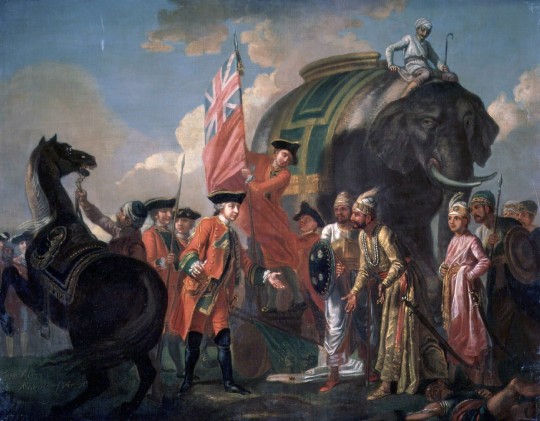
Our erstwhile Nawab of Bengal, Siraj ud-Daulah, defeated the British and kept their influence under control. The Subah of Bengal back then was one of the most influential and wealthy states in the history of South Asia. His general, Mir Jafar (a Delhite btw), who swore to the Nawab by the Holy Quran to fight against the British, betrayed Siraj at the Battle of Plassey for the sake of his own selfish ambitions, thus establishing British rule in the Indian subcontinent. And we all know what the British did to us.
:)
#this just came to my mind#so venting out#i'm sick of these anti bengali comments#bengali#bangla#india#langblr#west bengal#tripura#assam#বাংলা#desi
9 notes
·
View notes
Note
I'm the previous anon who was talking about Indian Colonial history
I do follow you but I wanted to remain anonymous because I'm kinda shy 😭. You can call me Madhuri so that it's clear who I am
So I hadn't really put much thought into Shaan being a direct employee of the British monarchy until the other anon pointed it out and the more I think of it, the more weirded out I get because in a fictional novel, I feel that the author has the responsibility to make their content respectful to all groups of people and this move was kind of thoughtless.
Indians were treated like shit when the British governed our land. Basically, the British arrived as cloth traders and by creating this elaborate debt trap for rural weavers, they took over our economy and gained trade monopoly. They got some tax cessations from different kings and finally in the Battle of Plassey, they took over Bengal, a super super important place because it was in the plains, had a long coastline and was one of the most industrialised towns.
They started taxing people to hell and back with no regard for their well being. They told our kings they would provide them arms and forces to protect themselves against other rulers all while instigating whatever the opposite of peace is (I literally cannot think of a work for this, I'm so sorry)
Indians were forced to pay them, work for them without pay and make goods for them at extremely nominal amounts while the British got all the profit. We were kidnapped from our own lands and sent to plantations. There was this inland immigration act which did not allow workers to even exit tea gardens without written permission which was rarely given. They shut down our press and arrested our revolutionaries. Our people were forced to fight in the army. The first revolution actually started because the army was being forced to use bullets greased with pig fat and cow fat one of which was haram for muslims and the other was the product of an animal holy to the Hindus.
They decimated our country and the impact is still felt today.
I have watched a lot of movies about colonialism in India and one of the most chilling lines Ive heard was something along the lines of 'A bullet costs one pound by the time it reaches your gun Soldier. Are you really going to waste it on brown trash' this was followed by the soldiers beating a mother to death in front of her daughter and the entire village.
I'll recommend some movies to you. They are fiction but manage to capture the history so so well. You can find these on Netflix btw.
1) Lagaan- it's about taxation during a time of drought and a surreal way to escape it
2) RRR- honestly, I had watched some part of it but couldn't watch further because of how chilling it was and how hard it hit but it is considered to be amazing
3) Rang De Basanti- It's about college students shooting a film about freedom fighters and it alternates with the story of the revolutionaries and their parallels with the characters. These students are changed forever when one act makes them question the entire system and they become revolutionaries themselves. The ending was surprising and I could feel my heart being ripped out of my chest
Hey, Madhuri! No worries, I totally understand wanting to stay anonymous, I’m literally the same way on here so I get it.
Thank you so much for this! Yeah, my history classes definitely didn’t go over enough about any of this, but I’ll be reading more about everything this week, because it’s important and I want to learn more. It’s clear there is an entire history between Britain and India that I only know the very tip of, so thank you again for writing this all out. I’m sure a lot of people probably don’t know much about this (unfortunately, since our textbooks tend to… you know… veer on the side of the oppressors), so this will all be incredibly educational to anyone reading it. Feel free to send more my way whenever you want! I love this!
I’ve heard awesome things about RRR, but didn’t know what it was about. I’m gonna watch it this weekend! And that last movie sounds really good too! Thanks for the recs!!!
As for Shaan… I honestly think Casey just wasn’t thinking. This isn’t in defense of them, an author should always think about what they’re doing and how it could show up on page or screen, but I truthfully think they just wanted to fill that role with some sort of minority and picked Indian because of the large UK Indian population. I’d bet all of the money in my wallet ($20) that Casey doesn’t know any more than the vague basics of everything you’ve told me. I noticed that they described Nora, who’s Jewish, using some stereotypical Jewish traits too (I can write more on this if anyone wants, don’t want to hijack this post). It really was a guess-and-pick of races and ethnicities for them. I love how diverse the book is, but it’s sorta clear it was done for the spectacle, not for any real heartwarming reason. Casey knew it would probably sell better, since it would be talked about as an incredibly varied collection of characters, I don’t think they thought about more than that, or didn’t think it would matter because of the positives.
Do I think Casey meant any direct hurt with it? No.
Do I think that Casey’s lack of understanding or having any knowledge beyond their contained worldview causes harm indirectly? Yes.
#rwrb movie#red white and royal blue#red white royal blue movie#rwrb cast#RWRB Shaan#Indian history#history of British india#history of india#casey mcquiston#RWRB Nora#RWRB book
7 notes
·
View notes
Text
An unexpected alliance forms between Robert Clive and a clever Indian chef, whose unique culinary tactics become the unsung heroes of the Battle of Plassey, turning it into an epicurean battlefield.
0 notes
Photo

Battle of Plassey
The Battle of Plassey on 23 June 1757 saw Robert Clive's East India Company army defeat a larger force of the Nawab of Bengal. Victory brought the Company new wealth and marked the beginning of its territorial expansion in the subcontinent. Not much more than a skirmish, Plassey has often been cited as the beginning of British rule in India.
Clive & the Expansion of the EIC
The East India Company (EIC) was founded in 1600, and by the mid-18th century, it was benefiting from its trade monopoly in India to make its shareholders immensely rich. The Company was effectively the colonial arm of the British government in India, but it protected its interests using its own private army and hired troops from the regular British army. By the 1750s, the Company was keen to expand its trade network and begin a more active territorial control in the subcontinent.
Robert Clive (1725-1774) had already distinguished himself in the Company service at Arcot in August 1751 where he had led his troops to withstand a 52-day siege. This was followed by a victory at Arni in December 1751. Clive then commanded the EIC artillery at Trichinopoly in June 1752. By 1755, Clive was a lieutenant colonel in the EIC army, and his name was under consideration to become the next Governor of Madras, but Bengal was the real trouble spot for the East India Company.
There was a new ruler of Bengal, Nawab Siraj ud-Daulah (b. 1733). Only assuming the role in April 1756, Siraj ud-Daulah, was in his early twenties and was something of a reckless youth. He was a surprising choice to inherit the nawab role from his grandfather Ali Vardi Khan. The decision to make Siraj ud-Daualah the crown prince four years earlier had already split the Bengal royal court just when unity was required to face its greatest challenge.
The new nawab took exception to the EIC presence in the region and marched on Calcutta in June 1756. Siraj ud-Daualah was particularly angry that the EIC had added to the fortifications of Calcutta without permission and had not responded favourably to his request to remove them. Arriving in the city with his army, a short siege followed, and Calcutta fell. The EIC was already obliged to respond to the loss of one of its most important trading centres but a curious incident then occurred which stiffened the resolve of the militarists in the Company and weakened the position of those who wished for the EIC to remain a purely trading body. After the fall of Calcutta, a number of military personnel and civilians who had been in the city's fort were taken prisoner and held in a small, poorly lit, and badly ventilated prison cell locally known as the Black Hole of Calcutta. According to one prisoner, only 23 men of the original 146 male and female prisoners survived the confinement, all the others died of extreme dehydration in the terrible heat of the packed cell. The effect of the Black Hole story was to galvanise the military response from the EIC.
Robert Clive was dispatched with an army to re-establish the EIC's trading presence in Calcutta. Sailing in five ships and with an army of some 1,500 men, Clive succeeded in recapturing Calcutta in January 1757, but Siraj ud-Daulah still had a massive army at large. What is more, the rival French East India Company was in control of Chandernagore just up the coast. Clive was determined on a decisive military action. He captured the fort of Hughli later in January, which was then destroyed by cannon fire from the EIC fleet. An attack on the nawab's army outside Calcutta was less successful and obliged Clive to retreat. Both sides became wary of the other and the heavy casualties any future confrontation would bring, but the control of Bengal was now at stake. A peace treaty was agreed upon, although both sides knew this was but a temporary pause. In the interim, Clive could now deal with the threatening French presence in the region. In March 1757, Clive attacked and captured Chandernagore, bringing an end to any remaining ambitions the French had in Bengal. When the Hindu Seths of Murshidabad, a dynasty of financiers worried at the demise in European trade any wider conflict would bring, withdrew their support of the now isolated nawab, Clive seized the moment.
Continue reading...
23 notes
·
View notes
Text
Robert Clive, a name synonymous with British India, was a man of immense accomplishment and equally significant controversy. This exploration of his life delves into his remarkable rise from a lowly East India Company clerk to a celebrated military leader who laid the foundation for British dominance in India. However, Clive's legacy is far from simple. We will examine the ethical complexities of his governorship, the challenges he faced upon his return to India, and the enduring debate surrounding his achievements and actions. Prepare to be introduced to a fascinating, complex, and ultimately tragic figure who forever altered the course of Indian history. Understanding Forgetfulness The Many Faces of Forgetfulness The truth is, forgetfulness isn't always a bad thing. In fact, it's a natural part of how our brains function. Here are a few types of forgetfulness that are considered normal: British Empire Builder: A Look at Robert Clive Robert Clive, a name etched in the annals of British colonial history in India, was a figure of immense accomplishment and equally significant controversy. This deep dive explores his life, from his unexpected rise to power to the complexities of his legacy. Clive's Early Ascendancy Clive's journey to becoming a pivotal figure in British India began rather unassumingly. In 1744, at the tender age of 18, he arrived in India as a lowly clerk for the East India Company (EIC), a powerful British trading entity. However, the 18th-century Indian subcontinent was a land of political turmoil, presenting both peril and unforeseen opportunities. The young Clive, with a keen strategic mind and a natural aptitude for military tactics, thrived in this environment. He rose swiftly through the ranks of the EIC's military, his battlefield prowess becoming increasingly evident. The defining moment of Clive's early career arrived in 1757 with the Battle of Plassey. The EIC forces, under Clive's masterful leadership, achieved a stunning victory against a numerically superior Indian army. This pivotal battle, though controversial in its tactics (which some historians allege involved exploiting internal conflicts within the Indian ranks), effectively laid the foundation for British dominance in Bengal, the wealthiest province in India. Clive's decisive triumph cemented his reputation as a brilliant military leader and earned him the sobriquet "Clive of India." Governor of Bengal Following his military success, Clive was appointed Governor of Bengal in 1757. This period marked a time of both immense achievement and ethically dubious practices. Undoubtedly, Clive's administration brought a measure of stability and prosperity to Bengal, significantly bolstering the EIC's coffers. He implemented reforms in tax collection and administration, but these often came at the expense of the local population. A key reform, the "dual system," placed tax collection rights in the hands of Indian intermediaries who answered to the EIC. While this streamlined revenue collection, it also opened doors for corruption and exploitation of the peasantry. Historians continue to debate the extent of Clive's personal involvement in these corrupt practices. Some allege his acceptance of gifts and excessive financial gains constituted blatant exploitation. Others argue that he was a product of his time, operating within a system inherently tilted towards profit maximization for the EIC. Regardless of the precise details, the exploitation undeniably occurred, leaving a stain on Clive's legacy. Understanding Forgetfulness The Many Faces of Forgetfulness The truth is, forgetfulness isn't always a bad thing. In fact, it's a natural part of how our brains function. Here are a few types of forgetfulness that are considered normal: Return to India After a period back in Britain, Clive returned to India in 1764 to quell a major uprising against the EIC's rule. He implemented reforms aimed at curbing corruption within the company's administration.
These reforms, however, were met with resistance from vested interests within the EIC. Disillusioned and facing renewed criticism upon his return to Britain in 1767, Clive became embroiled in a bitter political battle surrounding the alleged exploitation in Bengal. Ultimately, though acquitted of formal charges of corruption, Clive's reputation remained tarnished. Haunted by personal struggles and public scrutiny, he tragically took his own life in 1774. A Legacy of Duality Robert Clive's story embodies the complexities of colonialism. He was a brilliant strategist who secured British dominance in India. However, his methods were often ruthless and exploitative, contributing to a system of economic hardship for many Indians. Clive's legacy remains a topic of debate, a reminder of the lasting impact of colonialism and the moral dilemmas inherent in empire building. Clerk to Conqueror Robert Clive's rise to power in India is a fascinating tale, one that transcends the simple narrative of a young clerk becoming a military conqueror. This section delves into the intricacies of his early career, exploring the opportunities, challenges, and transformations that shaped him into "Clive of India." The Stage for Clive's Ambition In 1744, when Clive arrived in India at the tender age of 18, the Mughal Empire, which had previously held significant sway over the subcontinent, was crumbling. This political fragmentation created a power vacuum, with regional kingdoms and European trading companies vying for dominance. The East India Company (EIC), Clive's employer, was one such player, constantly embroiled in skirmishes with its French counterpart. This environment of instability provided the perfect breeding ground for an ambitious young man with a keen eye for strategy. Clive's Unexpected Aptitude for War Initially employed as a lowly clerk, a position typically focused on administrative tasks, Clive found the work mundane. However, his natural inclination towards leadership and a thirst for adventure drew him towards the burgeoning military wing of the EIC. While he lacked formal military training, Clive possessed a natural aptitude for warfare. He displayed a keen understanding of military tactics, a talent for motivating troops, and a strategic mind that thrived in the chaos of battle. Clive's Early Military Victories Clive's first taste of military success came during the Carnatic Wars (1746-1763), a series of conflicts between the British and French East India Companies. The 1746 capture of Madras by the French forced Clive to briefly become a prisoner of war. However, his escape and subsequent bravery during the siege of Fort St. David in 1748 caught the eye of Major Stringer Lawrence, a prominent British military leader. Lawrence recognized Clive's potential and became his mentor, grooming him for a more prominent role. The turning point arrived in 1751, when Clive, with a small force, successfully defended Arcot, a strategically important city, against a much larger enemy force. This audacious victory, achieved through clever tactics and a calculated gamble, established Clive's reputation as a brilliant and daring military leader. The Battle of Plassey and its Aftermath Clive's defining moment came in 1757 with the Battle of Plassey. Here, his strategic brilliance was on full display. Through shrewd negotiations and a suspected betrayal within the ranks of the Indian army led by Siraj-ud-Daulah, Clive's smaller force emerged victorious. This pivotal battle, though marred by controversy surrounding the alleged manipulation of internal conflicts within the Indian side, effectively laid the foundation for British dominance in Bengal. The immense wealth of Bengal flowed into the EIC's coffers, and Clive, hailed as a hero, was showered with riches and honors. Understanding Forgetfulness The Many Faces of Forgetfulness The truth is, forgetfulness isn't always a bad thing. In fact, it's a natural part of how our brains function. Here are a few types of forgetfulness that are considered normal:
Conclusion: From Humble Clerk to Architect of an Empire Robert Clive's journey from a lowly clerk to a celebrated military leader is a testament to his ambition, strategic acumen, and the opportunistic climate of 18th-century India. The Battle of Plassey marked a turning point, not just for Clive's career, but for the course of British colonialism in India. However, the seeds of future controversies surrounding exploitation and ethical ambiguity were also sown during this period. A Controversial Governor Robert Clive's tenure as Governor of Bengal (1757-1760) stands as a stark reminder of the exploitative nature of British colonialism in India. While his administration brought a degree of stability and economic prosperity, it was achieved through methods that caused immense hardship for the Bengali people. Let's delve deeper into the complexities of Clive's governorship. A Recipe for Exploitation One of Clive's key reforms, the "dual system," established a seemingly efficient method of tax collection. The system entrusted Indian intermediaries, known as zamindars, with the responsibility of collecting taxes from peasants and delivering the revenue to the EIC's treasury. In theory, this streamlined the process and reduced administrative costs for the company. However, the dual system proved disastrous in practice. The zamindars, eager to maximize their own profits, often resorted to extortionate practices on the peasantry. They demanded exorbitant taxes, often exceeding the pre-British levels, leaving farmers with little to sustain themselves. This exploitation, coupled with a series of natural disasters, led to a devastating famine in Bengal (1769-1770) that claimed millions of lives. While the extent of Clive's direct involvement in this exploitation remains debated, the system he implemented undeniably contributed to the tragedy. Personal Enrichment and the Question of Corruption Clive's own financial gains during his governorship further fueled controversy. He accepted substantial gifts and payments from Indian rulers and intermediaries, which many historians consider blatant corruption. Clive's defenders argue that these practices were commonplace at the time and essential for maintaining influence in the region. However, the sheer scale of his personal wealth – amassed in a relatively short period – raises serious questions about his ethical conduct. Weakening of Traditional Institutions The British intervention under Clive also disrupted traditional power structures in Bengal. The Mughal emperors, previously the dominant rulers, were relegated to mere puppets. The zamindars, initially local revenue collectors, were transformed into instruments of British control. This dismantling of existing political and economic systems further destabilized the region and contributed to the hardships faced by the Bengali people. A Legacy Tainted by Exploitation Robert Clive's governorship of Bengal marked a turning point in British dominance in India. However, this power was built on a foundation of exploitation and manipulation. The dual system, the acceptance of questionable payments, and the weakening of traditional institutions left a lasting scar on Bengal. Clive's legacy remains a complex one, forever intertwined with the harsh realities of colonialism. The Fall of Clive Robert Clive's story doesn't end with his controversial tenure as Governor of Bengal. He returned to India in 1764, facing a very different scenario from his initial rise to power. Let's explore this tumultuous period and how it cemented his complex legacy. A Return to Quell Rebellion By the early 1760s, the exploitative practices of the East India Company (EIC) had fueled widespread discontent in Bengal. This culminated in a major uprising led by Mir Qasim, a former Nawab (ruler) who had been deposed by Clive. The rebellion threatened British dominance in the region, prompting Clive's return as Governor and Commander-in-Chief of Bengal in 1764.
Reforms and Resistance Recognizing the role of EIC corruption in the rebellion, Clive attempted to implement reforms. He aimed to curb the rampant abuse of power by company officials and establish stricter regulations on private trade. These reforms, however, met with fierce resistance from vested interests within the EIC. Many company officials, accustomed to enriching themselves through exploitation, saw Clive's reforms as a threat to their livelihood. Facing Public Scrutiny Back in Britain Clive's return to India was a far cry from his triumphant first governorship. He faced constant opposition from within the EIC and a growing public outcry in Britain. Newspapers and Parliament began to question his earlier methods in Bengal, particularly the accusations of personal enrichment. Clive, disillusioned and weary, returned to England in 1767. A Bitter Political Battle and a Tragic End Back in Britain, Clive faced a public inquiry into his conduct in Bengal. Though ultimately acquitted of formal charges of corruption, the inquiry further tarnished his reputation. Haunted by personal struggles, public scrutiny, and accusations of profiteering, Clive tragically took his own life in 1774. A Legacy Forever Debated Robert Clive's story remains a subject of intense debate. He is hailed as a brilliant military leader who secured British dominance in India. However, his methods were often ruthless and exploitative, contributing to a system that caused immense suffering for the Bengali people. Clive's legacy is a stark reminder of the complexities of colonialism, where ambition and achievement are intertwined with exploitation and moral ambiguity.
0 notes